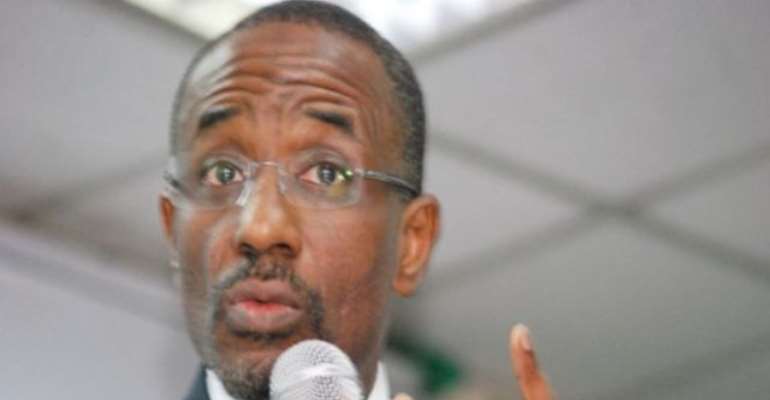CBN Gives Airlines 500B Life Line

Nigeria's central bank said on Sunday it was extending a 500 billion naira ($3.3 bln) fund meant to stimulate credit to the power and manufacturing sectors to the country's troubled airline industry.
Domestic airlines in sub-Saharan Africa's second biggest economy have gone through rapid expansion in recent years and are heavily indebted to the country's banks, themselves just recovering from the impact of a $4 billion bailout last year.
Higher prices for jet fuel have already forced some smaller airlines to ground some flights, Nigerian media have reported.
"These airlines can now partake from the fund and those that are indebted to banks can refinance their loans and amortize them over a period of 10-15 years," central bank spokesman Mohammed Abdullahi said.
"This we believe will help put off a feared financial crisis in the aviation industry," he said.
Nigeria's airline industry has become highly competitive in recent years, particularly on domestic routes, with new carriers such as Arik Air and Dana Air springing up to compete with older firms such as Aero Contractors and IRS Airlines.
British billionaire Richard Branson's Virgin Atlantic has said it is looking to sell its 49 percent stake in Virgin Nigeria, which recently changed its name to Nigerian Eagle Airlines and said last year it needed fresh capital.
The airline last year suspended its loss-making long haul flights to Britain and South Africa to focus on domestic and regional operations, under pressure from on of its main financial backers, Nigeria's United Bank for Africa.
Analysts have warned some Nigerian airlines are in such financial dire straits that they could end up being forced to merge or face collapse.
ANAEMIC CREDIT GROWTH
The central bank first announced the 500 billion naira facility in March as part of efforts to revive credit to the real economy, which has suffered after banks tightened lending criteria in the wake of last year's bailout.
It said on Friday 200 billion naira of the fund would allow banks to refinance loans to manufacturers. The remainder will be used to finance power projects in Africa's most populous nation, where chronic electricity shortages have been a major brake on economic growth for decades.
Nigerian industry has long been hobbled by difficulties accessing long-term finance, particularly smaller companies.
Credit to the private sector was booming when the stock market was reaching all-time highs in 2008, but much of it was to capital markets speculators and fuel importers rather than to the productive economy.
In the wake of a collapse in the capital markets and the near-collapse of several banks, credit growth has stagnated. Bank credit to the private sector has remained flat at around 0.3 percent this year from growth of 25 percent in 2008.
The central bank has left its benchmark interest rate at 6 percent since last July, despite double-digit inflation, to encourage banks to grow their loan books and pumped 1.2 trillion naira in subsidized credit into the economy, but the impact so far has been limited.
